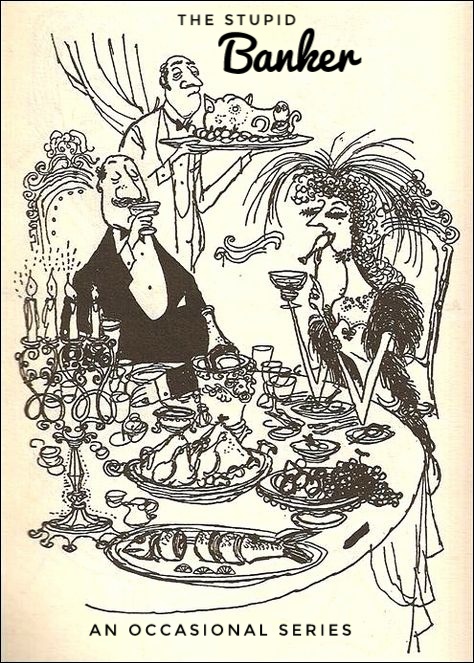Kelly v Solari
|
The Jolly Contrarian Law Reports
Our own, snippy, in-house court reporting service.
|
A stupid banker case — strictly speaking, a stupid insurance broker , but who’s counting? — also involving a little old lady. So that rare thing where both counterpoint maxims of legal probity apply at once: hard cheese for big dogs, and little old ladies make bad law. You normally only require one for a curious result. Imagine what happens when you get two. Curiously, they seem to cancel each other out.
in 1836, a Mr. Angelo Solari took out a policy on his own life with the Argus Assurance Company for £200. Four years later, by oversight, he forgot to pay his quarterly premium, due in September 1840. Not long after that, in October, he popped his clogs. In November, (we think being unaware of Mr Solari’s demise, Argus’s actuary advised Argus’ Mr. Clift that the policy had lapsed, by reason of non-payment, and Mr. Clift wrote upon the policy, in pencil, the word “lapsed”.
In February of the following year Mr Solari’s widow, ignorance, we think, of the missed payment and the actions of Mr. Clift, applied at Argus’s office for the payment of the sum of £1000 due under the policy and was, after deduction of costs, paid.
In evidence, Argus’s Messrs. Bates and Clift stated that when they paid the money they had entirely forgotten that the policy had lapsed.
The court was presented with a scenario in which, on the facts, the straightforward answer was apparently that a recently widowed little old lady must repay her husbands life insurance in full because of an oversight he made a month before he died.
Lord Arbinger, brilliantly, shifted the focus of the debate from the law — which appeared to offer the poor little old lady no help at all — to the facts, which, he pondered, might not have been fully investigated. “I think the defendant ought to have had the opportunity of taking the opinion of the jury on the question whether in reality the directors had a knowledge of the facts, and therefore that there should be a new trial and not a verdict for the plaintiff.”
The safest rule however is, that if the party makes the payment with full knowledge of the facts, although under ignorance of the law, there being no fraud on the other side, he cannot recover it back again. There may also be cases in which, although he might by investigation learn the state of facts more accurately, he declines to do so, and chooses to pay money notwithstanding; in that case there could be no doubt that he is equally bound. Then there is a third case, and the most difficult one, – where the party had once a full knowledge of the facts, but has since forgotten them. I certainly laid down the role too widely to the jury, when I told them that if the directors once knew the facts they must be taken still to know them, and could not recover by saying that they had since forgotten them. I think the knowledge of the facts which disentitles the party from recovering, must mean acknowledge existing in the mind at the time of payment. I have little doubt in this case that the directors had forgotten the fact, otherwise I do not believe they would have brought the action; but as Mr Platt certainly has a right to have that question submitted to the jury, there must be a new trial.
Rolfe B had this to say:
but I agree that Mr. Platt has a right to go to the jury again, upon two grounds: first, that the jury may possibly find that the directors had not in truth forgotten the fact; and secondly, they may also come to the conclusion, that they had determined that they would not expose the office to unpopularity, and would therefore pay the money at all events; in which case I quite agree they could not recover it back.
Rule absolute for a new trial.
